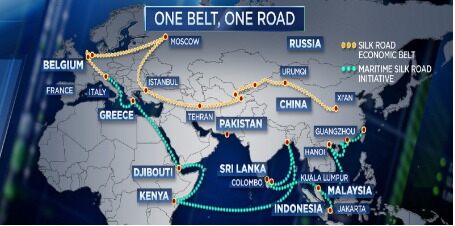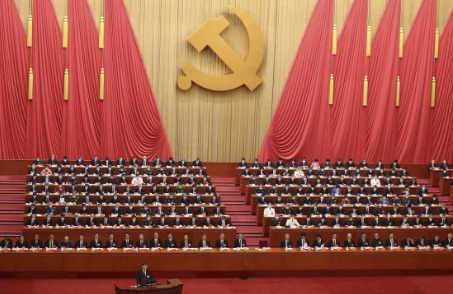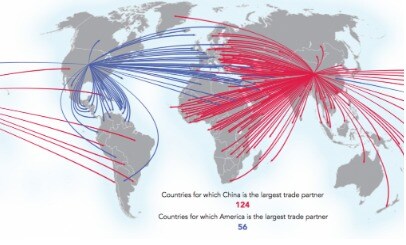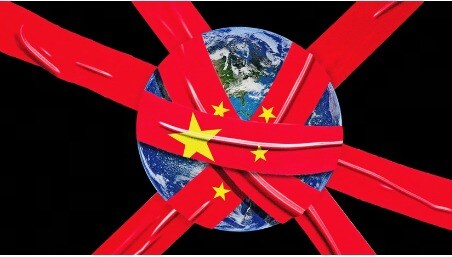Introduction
China was once a small place, like a tiny fishing village. But now, it’s huge! It’s one of the most important countries on the planet. It is called “economic zones” where companies go to make stuff. These zones helped China grow a lot. They got good at making things cheap, which made them super rich!
It all started in 1978 when Deng Xiaoping introduced new ideas that changed the country. It has a long history, stretching back thousands of years. The name “CHINA” comes from the Qin dynasty, which unified the country 2,000 years ago. Interestingly, in India, the word “CHINI” means white sugar.
They also faced tough times in the 1800s when other countries tried to control it. This period is called the “Century of Humiliation.” The British even sold drugs to China, causing lots of problems.
After World War II, there was a big fight between two groups: the Communists and the Nationalists. The Communists won, and Mao Zedong became their leader. But Mao made some bad decisions, like the Great Leap Forward and the Cultural Revolution, which led to the deaths of millions of people.
Becoming the Silicon Valley of the East
In 1976, Deng Xiaoping took over and changed things. He opened China to the world, which helped businesses grow and brought people out of poverty. Deng’s plan included creating special areas where foreign companies could invest money.
Their economic miracle began in a modest fishing village, evolving into a thriving metropolis with a $30,000 average income. Special economic zones sparked this transformation, attracting foreign investment and turning them into the world’s manufacturing powerhouse.
The country’s focus on innovation and technology birthed the “Silicon Valley of the East,” leading in AI, e-commerce, and renewable energy. With stakeholder capitalism, China emphasises the welfare of all, attracting US giants like Walmart, Nike and Apple.
This approach addresses societal and environmental concerns alongside profits. As its influence grows, its economic model reshapes global dynamics, heralding a new era of innovation-driven prosperity.
Naval Power Projection: Controlling the Blue Silk Road
The Blue Silk Road project is changing Myanmar a lot. They’re building big things like roads, ports, and dams, which are like giant walls to stop water. These projects will make life different for people in Myanmar.
One big project is the $2.45 billion oil and gas thing on Maday Island. It’s a smart idea because it helps China get energy without relying on one place. It will give 6% of what they need each year. This will affect other countries nearby, like Singapore, Malaysia, and Indonesia.

Another big thing is the Kyaukphyu deep-sea port. It will handle tons of stuff, like cargo and containers. This port will give jobs to 100,000 people and make the small fishing town a big trading place.
But not everyone is happy about these changes. Some worry about losing local control and hurting nature. The Myanmar government needs to find a balance between the good things these projects bring and protecting their own interests and environment.
Media Control: Shaping the Narrative
The government controls the media a lot, which helps it keep power. The Chinese Communist Party (CCP) makes sure the news says what they want and stops anything that disagrees with them.
They do this by censoring, which means they block things on the internet and social media that they don’t like. They also use propaganda, which is like advertising for their ideas. The CCP owns a lot of the media, so they can say what they want.

This control isn’t just in China. The CCP also tries to control what people say in other countries. They use their money to make sure news outside their own country says what they like.
This control is a big deal because it stops people from saying what they really think. It’s not fair because everyone should be able to speak their mind. It also makes it hard for countries to know what’s really happening in China. So, it’s important to have freedom of speech and independent media.
Land Grab: Expanding Territorial Influence
They have been trying to take over land from their neighbours for a long time, and this worries a lot of people. They do it in sneaky ways, like quietly moving into Bhutan’s land. China is big and strong, so it uses its power to push Bhutan into giving up its land. They build villages and military places on Bhutan’s land without asking, hoping nobody will notice.
People around the world are worried about what the Chinese are doing in Bhutan, but nobody has done much to stop it. India is especially worried because if the Chinese take over Bhutan, it will be surrounded by Chinese.
Their actions show that they want more land, and everyone needs to work together to stop this. Talking with them and maybe not trading with them might help stop them from taking more land from Bhutan and other countries. We need to make sure countries respect each other’s land.
Cyber Sovereignty: Controlling the Virtual Realm
China wants to control the internet inside its borders, which is called cyber sovereignty. It means they get to say what people can see and do online. But some people think they are using this to control what people say and think. They block websites and social media from other countries and watch only the Chinese people’s content.
The Great Firewall is the Chinese way of doing this. It’s like a big wall that stops their people from seeing things online that the government doesn’t like. This control over the internet stops people from speaking freely, limits what they can learn, and makes it hard for new ideas to grow.
It’s a big issue because everyone should be able to use the internet freely and share ideas. We need to find a balance between letting countries control their internet and making sure people have freedom online.
Global Alliances: Building Coalitions for Influence
A new group of countries is teaming up together: China, Russia, and Iran. The West calls them the “troika of tyranny” or the “triad of bullies.” They’re joining forces because they’re not happy with the United States having so much power in the world.
China and Russia are getting closer, helping each other with defence and money. Chinese are helping Russians by not agreeing to some rules that the United States and other rich countries want. Iran is also getting closer to them, supporting Russia in politics and getting help from Chinese money.

This alliance isn’t just about going against the West; it’s also about stopping the West from acting like they own the world. Many countries are tired of the West deciding what’s right for everyone and sometimes punishing other countries with sanctions or wars.
India, a friend of Russia and Iran, isn’t directly targeted by this alliance, but it should be careful. China, especially, might have its own plans and might try to get other countries to join them against the West. India should watch closely and make sure it’s protecting its own interests.
Language Dominance: The Power of Mandarin
Mandarin is the main language of the Chinese people, and it’s quite different from English, but not too hard to learn. It has a simple way of putting words together, which helps English speakers. But the tricky part is the tones. The tone you use when saying a word can change its meaning.
There are four tones in Mandarin, plus one that’s neutral, and this can be tough for people from other countries. Even with the challenges, Mandarin is super important. Over 921.2 million people around the world speak Mandarin. It’s the official language in places like China, Taiwan, and Singapore, and it’s used in the United Nations too.
The Chinese have lots of money and power, so knowing Mandarin can help you in business and talking to other countries. Learning Mandarin opens up all sorts of opportunities, both in your personal life and for jobs. Plus, it helps you understand Chinese culture and history better. So, even though it’s a bit tricky, it’s worth learning!
Conclusion
In conclusion, China’s journey from a modest beginning to a global powerhouse is extraordinary. Deng Xiaoping’s reforms catapulted its economy, attracting foreign investment and fostering innovation. However, challenges like territorial expansion, media control, and cyber sovereignty pose concerns.
Their economic success and focus on innovation and technology have reshaped global dynamics and positioned them as a leader in various sectors, including manufacturing, technology, and trade.
Their alliance reshaped global dynamics, urging vigilance, especially for nations like India. Mandarin’s prominence underscores its influence, offering opportunities but also complexities.
As Chinese influence grows, nations must navigate these challenges while safeguarding their interests and values. Now, China is a big and powerful country, but it had to go through a lot to get here. It’s a reminder that change takes time and can come with challenges.
– Abhinash Pritiraj


